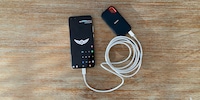
Huawei vs United States: Donald Trump extends the embargo against Huawei
US President Donald Trump has extended the sanctions against Huawei for another year. The Chinese group must therefore get by without Google until May 2021 at the earliest.
The President of the United States of America, Donald Trump, has extended the embargo against Huawei by one year. This means that US companies will still not be allowed to work with the Chinese group. This is what the online platform PocketNow reports.
Huawei must therefore survive without Google until May 2021, at the earliest.
One decree after another
The trade ban came into force on 15 May 2020, after a presidential decree was issued. Such documents are written in the first person and constitute a direct order from the President of the United States himself, at least according to current legislation.
This power is conferred on him by Article 2 of the Constitution of the United States of America. Such a Presidential Executive Order remains in effect until the President repeals or withdraws it, a court finds it illegitimate, or the expiration date has passed. The President of the United States can withdraw or amend an executive order at any time, even if it was issued by one of his predecessors. For example, Donald Trump could amend an executive order issued by Barack Obama. If anything, the new president-elect normally does this when he becomes aware of existing executive orders during his first few weeks in office.

Source: Département de la Défense
Since taking office four years ago, Donald Trump has issued 152 presidential executive orders. By comparison, Barack Obama passed 276 in eight years. If the current president continues at the same pace, he will quickly reach Obama's number. However, given that Donald Trump can only take action with difficulty without arousing criticism or questions about the office and power of the president, he is being accused of abuse of power, but not directly from a legal point of view.
Presidential decrees are based on the fact that a president acts disinterestedly, in the interests of the nation and only in emergency situations.
Huawei still under pressure
With the extension of the decree, Huawei is still under pressure, given that even though the manufacturer is making considerable profits, Huawei's new mobile phones are slipping under the radar of many users. The digitec comments read: no Google, no Huawei. So, even though the smartphone's camera is incredible, if Google's Play Store and the underlying services are not installed beforehand, many customers don't finalise the purchase.

Of course, the system can be hacked, but anyone who doesn't dare stick their neck out won't have access to Google. For some phones, however, hacking remains impossible and, even if there is no direct danger to the basic functions of smartphones, they will remain devoid of Google services. Basically, without a modicum of work, the new Huawei mobile phones are useless to a lot of people.
Huawei is therefore developing an alternative, the App Gallery. The problem is that Google's Play Store is ten years ahead of the game; Huawei is now trying to catch up on a fast track. After the decision in autumn 2019, this seems to be progressing well. However, catching up with a ten-year delay in six months remains in the realm of the impossible.
25 people like this article
Journalist. Author. Hacker. A storyteller searching for boundaries, secrets and taboos – putting the world to paper. Not because I can but because I can’t not.
